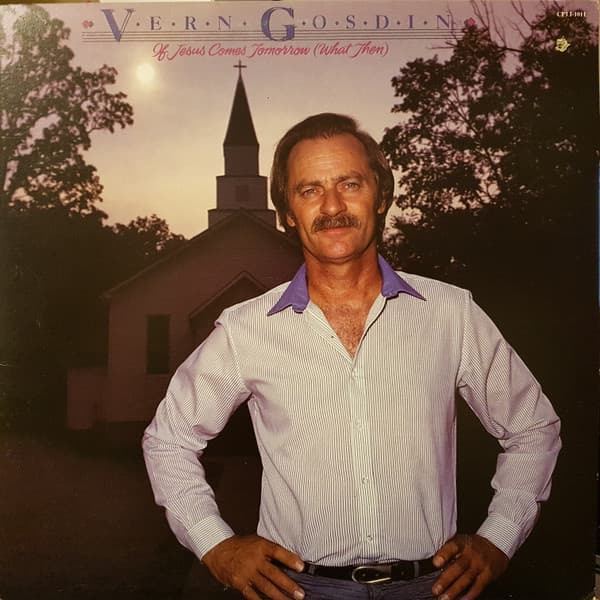
“If Jesus Comes Tomorrow, What Then”: A Solemn Reflection on Life’s True Accounting
There are certain songs that arrive not just as melodies, but as profound questions, lingering in the quiet corners of our minds long after the last note fades. Vern Gosdin’s “If Jesus Comes Tomorrow, What Then” is precisely such a song. Released in 1984 on his album There Is a Season, this deeply introspective piece of country gospel resonated with a generation, climbing to a respectable No. 17 on the Billboard Hot Country Singles chart. For many of us who remember those times, it wasn’t just a hit; it was a moment of pause, a gentle, yet firm, nudge to consider the eternal.
This song, co-written by the inimitable Vern Gosdin himself along with Max Barnes, delves into themes of spiritual readiness, self-examination, and the ultimate accountability for one’s life. It isn’t a fire-and-brimstone sermon, but rather a heartfelt, almost melancholic, contemplation on what truly matters in the grand scheme of things. The story behind it, while not a dramatic tale of sudden revelation, lies in the earnest tradition of country music’s embrace of faith and introspection. Gosdin, often lauded as “The Voice” for his rich, emotive baritone, had a knack for infusing his songs with a raw, relatable honesty, and “If Jesus Comes Tomorrow, What Then” is a shining example of this gift. It’s a song born from the common human experience of pondering mortality and the desire for spiritual peace, a sentiment that runs deep in the soul of traditional country music.
The meaning of “If Jesus Comes Tomorrow, What Then” is laid bare in its very title: it’s a stark, direct challenge to the listener to consider their spiritual preparedness. The lyrics paint vivid, yet simple, scenarios: “If Jesus comes tomorrow to spend some time with you / Would you answer all His questions or lie to hide the truth?” and “If Jesus called your number, could you leave today? / Are you ready to lay down your worldly goods and walk away?” These aren’t abstract theological questions; they are deeply personal queries that cut to the heart of how we live our lives. The song urges us to examine our priorities, our actions, and our readiness to face a higher judgment. It’s a call to repentance, yes, but also a comforting reminder of forgiveness and the hope of redemption. It speaks to the universal yearning for peace and acceptance, offering a pathway through honest self-reflection.
Gosdin’s delivery on this track is nothing short of masterful. His voice, with its characteristic tremor and profound sincerity, carries the weight of the song’s message without ever becoming preachy. There’s a humble vulnerability in his singing that makes the listener feel as though they are not being judged, but rather gently invited to reflect alongside him. It’s the voice of a man who has lived, loved, and perhaps stumbled, and now offers a moment of shared contemplation. The sparse arrangement, typical of the era’s honest country sound, allows every word to land with impact. The simple guitar melodies and understated rhythm section provide the perfect backdrop for Gosdin’s compelling vocal performance, creating an atmosphere that feels both intimate and expansive.
For many of us who heard this song when it first graced the airwaves, it became a quiet benchmark, a melody that resurfaced whenever life’s complexities seemed overwhelming. It wasn’t about fear, but about a profound sense of purpose. It reminded us that time is precious, and what we do with it, how we treat others, and how we nurture our spirits, truly matters. “If Jesus Comes Tomorrow, What Then” stands as a timeless piece of country music, a testament to Vern Gosdin’s enduring legacy as a singer whose voice could stir the soul and whose songs offered not just entertainment, but moments of genuine, heartfelt reflection. It’s a song that continues to resonate, a gentle whisper across the years, prompting us to consider the ultimate questions of life with an open heart.